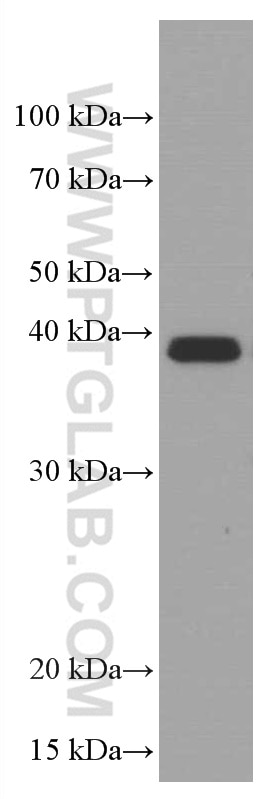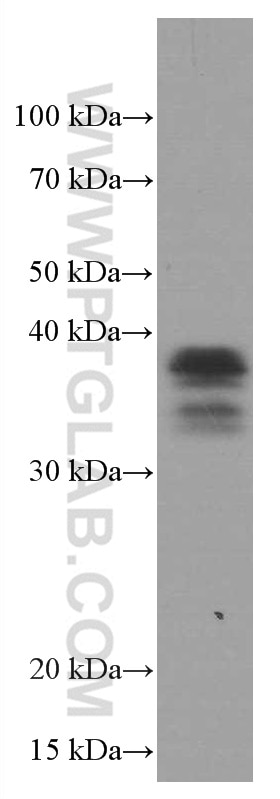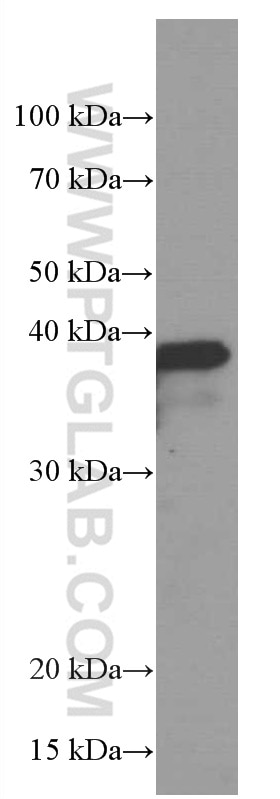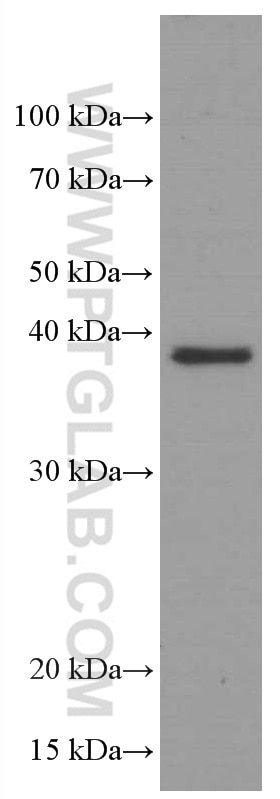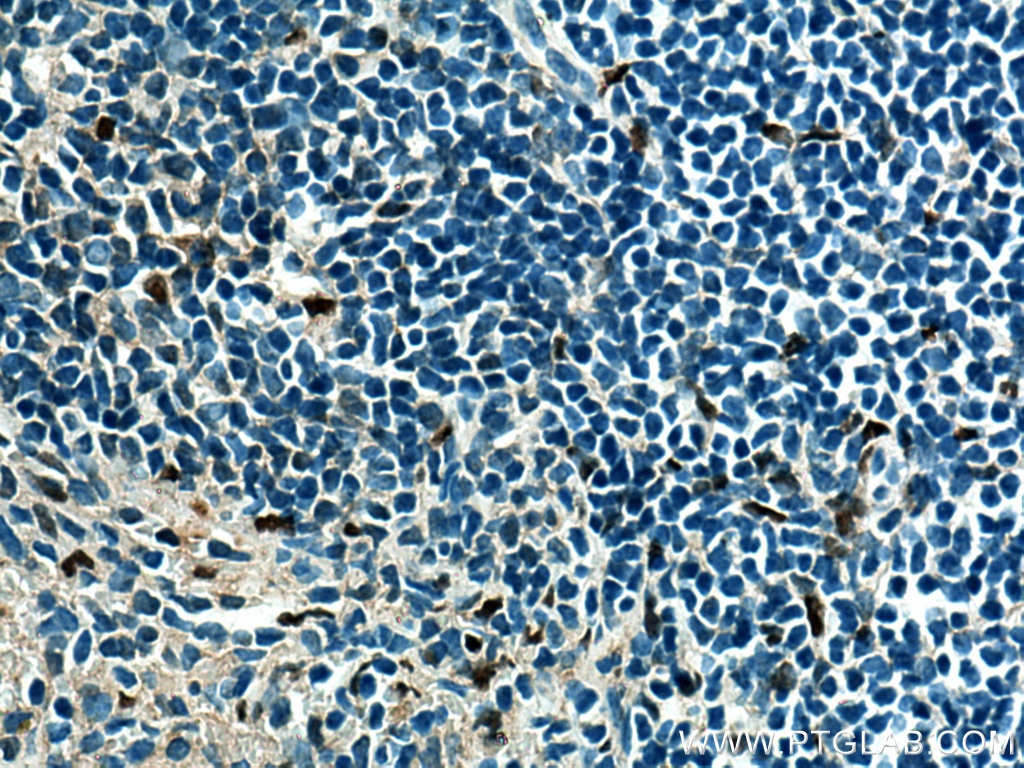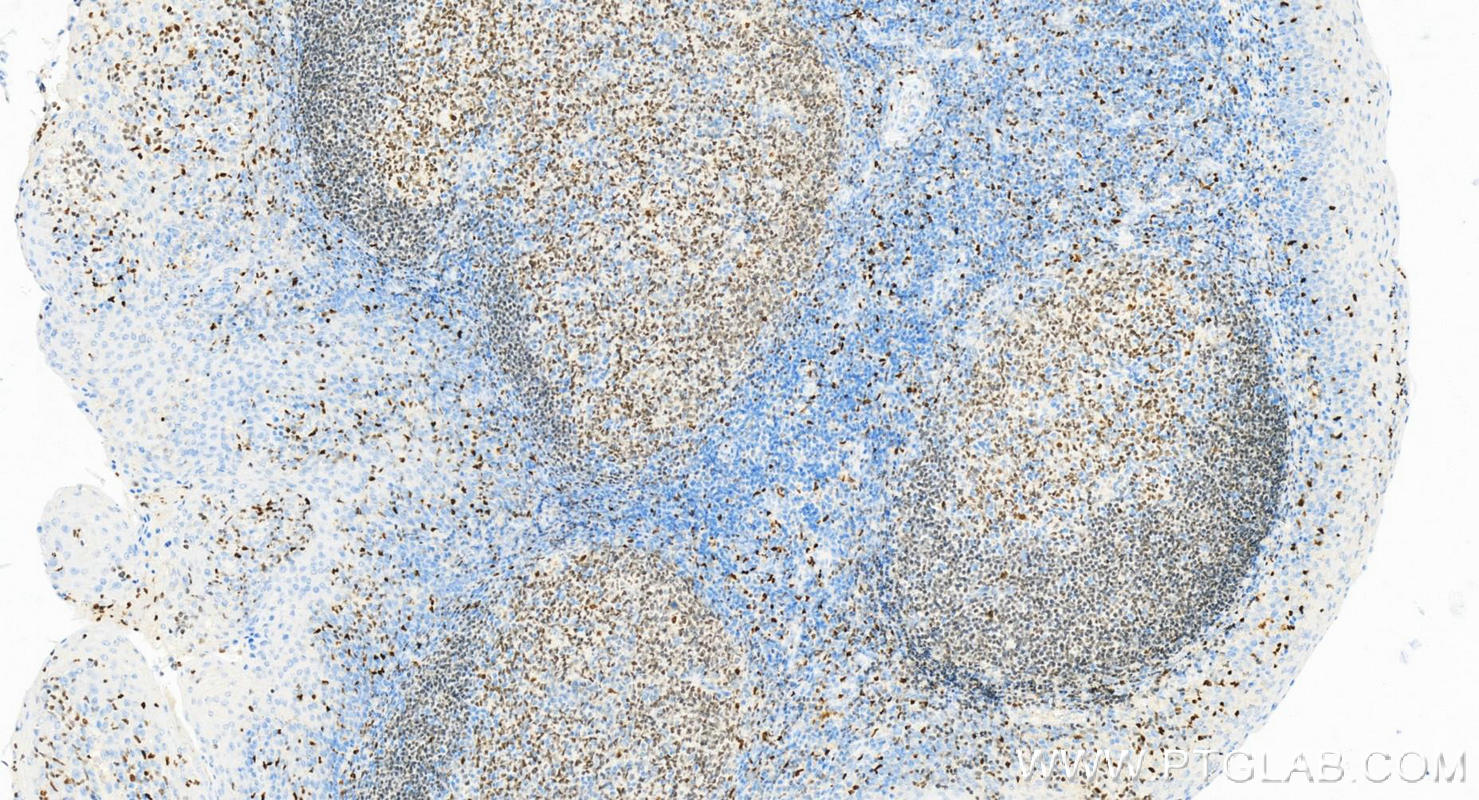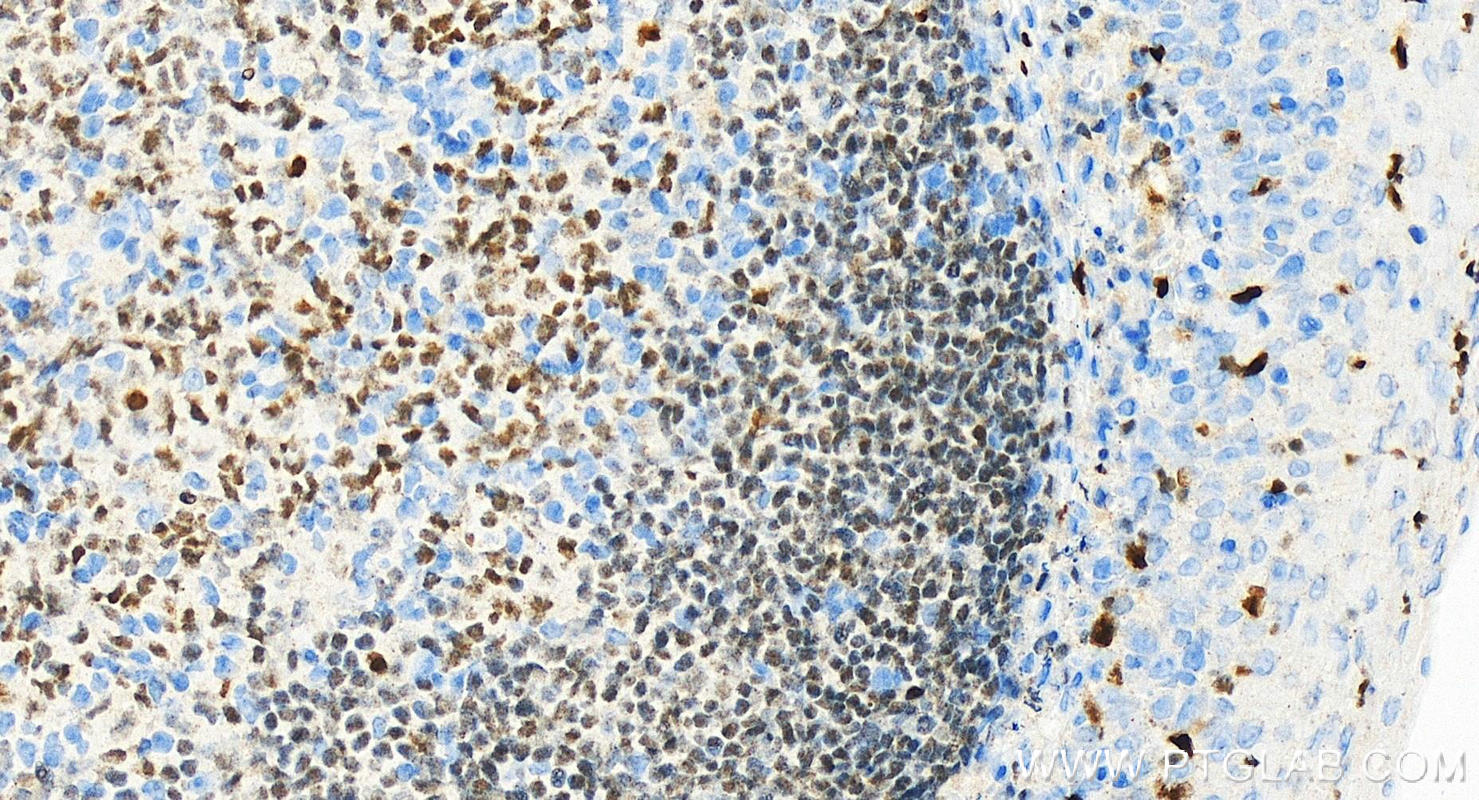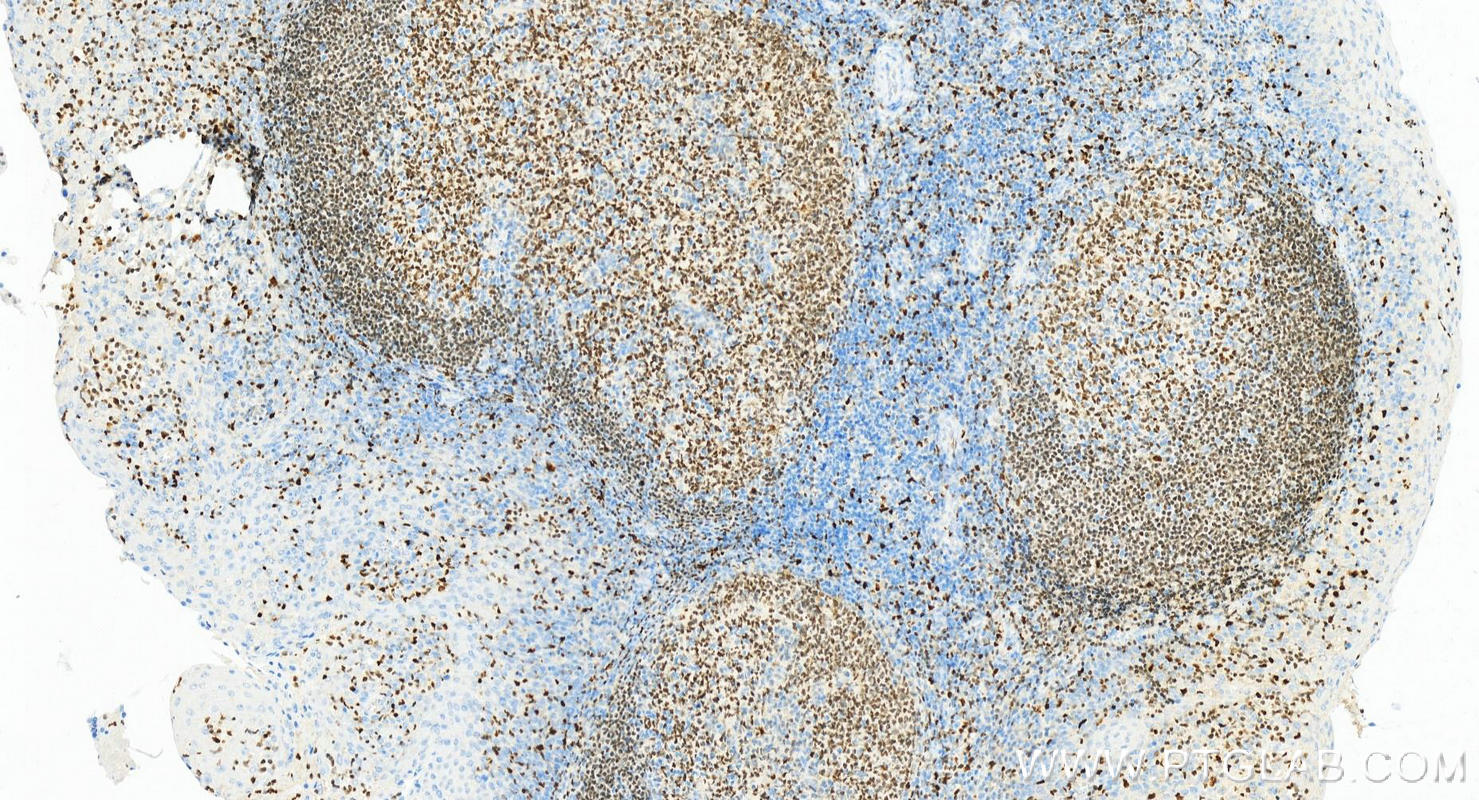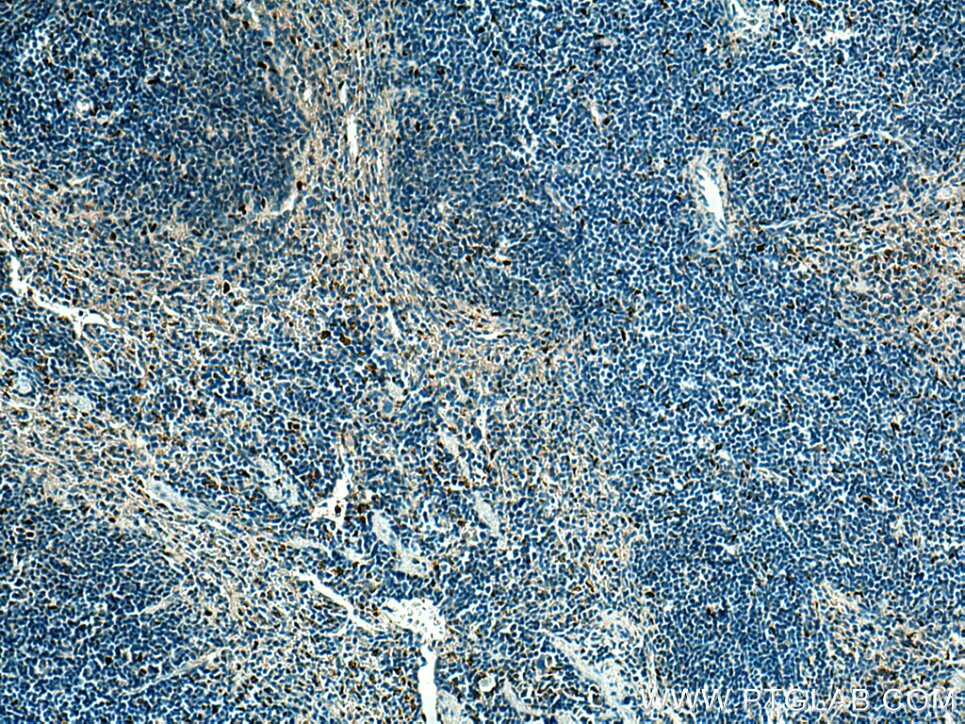Validation Data Gallery
Tested Applications
| Positive WB detected in | Daudi cells, Raji cells, RAW 264.7 cells, rat spleen tissue |
| Positive IHC detected in | Human tonsillitis tissue, mouse spleen tissue Note: suggested antigen retrieval with TE buffer pH 9.0; (*) Alternatively, antigen retrieval may be performed with citrate buffer pH 6.0 |
Recommended dilution
| Application | Dilution |
|---|---|
| Western Blot (WB) | WB : 1:2000-1:10000 |
| Immunohistochemistry (IHC) | IHC : 1:2000-1:8000 |
| It is recommended that this reagent should be titrated in each testing system to obtain optimal results. | |
| Sample-dependent, Check data in validation data gallery. | |
Published Applications
| WB | See 4 publications below |
| IHC | See 3 publications below |
| IF | See 2 publications below |
| CoIP | See 1 publications below |
Product Information
66618-2-Ig targets SPI1 in WB, IHC, IF, CoIP, ELISA applications and shows reactivity with human, mouse, rat samples.
| Tested Reactivity | human, mouse, rat |
| Cited Reactivity | human, mouse |
| Host / Isotype | Mouse / IgG1 |
| Class | Monoclonal |
| Type | Antibody |
| Immunogen |
Peptide 相同性解析による交差性が予測される生物種 |
| Full Name | spleen focus forming virus (SFFV) proviral integration oncogene spi1 |
| Calculated molecular weight | 31 kDa |
| Observed molecular weight | 32-38 kDa |
| GenBank accession number | NM_003120 |
| Gene Symbol | SPI1 |
| Gene ID (NCBI) | 6688 |
| ENSEMBL Gene ID | ENSG00000066336 |
| RRID | AB_2881978 |
| Conjugate | Unconjugated |
| Form | |
| Form | Liquid |
| Purification Method | Protein G purification |
| UNIPROT ID | P17947 |
| Storage Buffer | PBS with 0.02% sodium azide and 50% glycerol{{ptg:BufferTemp}}7.3 |
| Storage Conditions | Store at -20°C. Stable for one year after shipment. Aliquoting is unnecessary for -20oC storage. |
Background Information
SPI1, also named as 31 kDa-transforming protein, is a 270 amino acid protein, which belongs to the ETS family. SPI1 is highly expressed in both FV-P and FV-A-induced erythro-leukemia cell lines that have undergone rearrangements of the SPI1 gene due to the insertion of SFFV.
Protocols
| Product Specific Protocols | |
|---|---|
| IHC protocol for SPI1 antibody 66618-2-Ig | Download protocol |
| WB protocol for SPI1 antibody 66618-2-Ig | Download protocol |
| Standard Protocols | |
|---|---|
| Click here to view our Standard Protocols |
Publications
| Species | Application | Title |
|---|---|---|
J Immunother Cancer SPI1+CD68+ macrophages as a biomarker for gastric cancer metastasis: a rationale for combined antiangiogenic and immunotherapy strategies | ||
Acta Pharmacol Sin PU.1/Spi1 exacerbates ischemia-reperfusion induced acute kidney injury via upregulating Gata2 and promoting fibroblast activation | ||
Pathol Res Pract INHBA, transcriptionally activated by SPI1, facilitates gastric cancer progression by inducing macrophage recruitment and M2 polarization via activating the TGF-β signaling to increase CCL2 | ||
Discov Oncol SPI1 is a prognostic biomarker of immune infiltration and immunotherapy efficacy in clear cell renal cell carcinoma | ||
Cancers (Basel) ACAP1 Deficiency Predicts Inferior Immunotherapy Response in Solid Tumors | ||
Exp Cell Res IRF1 suppresses colon cancer proliferation by reducing SPI1-mediated transcriptional activation of GPX4 and promoting ferroptosis |

